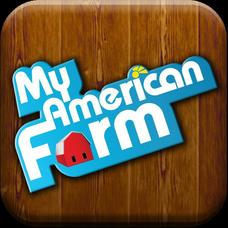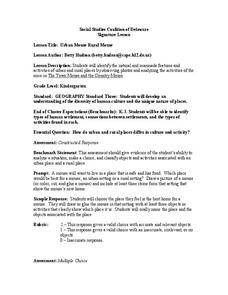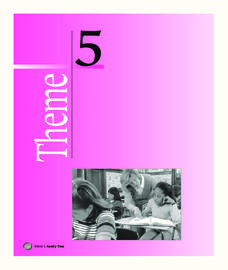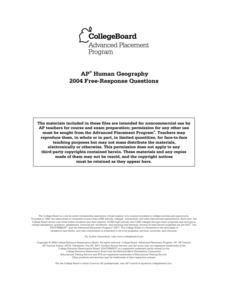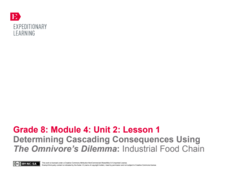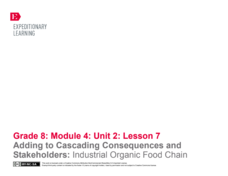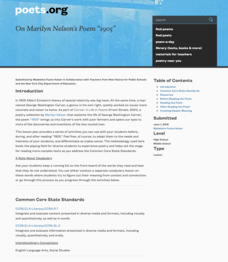Curated OER
Label The Farm Animals
Your youngest Spanish learners will love coloring these fun, farmyard friends! They learn the words for rooster, pig, horse, donkey, sheep, duck, chicken, goat, and cow. Next, they color a picture of each animal and practice writing the...
Curated OER
Animales de la granja
Yee-haw! Welcome to the farm. Your young Spanish language learners match six animals to their Spanish translation. After they complete it, gather the class together, make the sound of one of the animals, and have the kids identify the...
Alabama Department of Archives and History
Alabama Farm Life in the Great Depression
The Great Depression not only impacted city folk and factory workers, it also had a profound effect on farmers. Young historians examine primary source materials that document the struggles of Alabama farmers during this time and...
American Farm Bureau Foundation for Agriculture
Shapes in Agriculture
It's time to get crafty with shapes! Your future farmers demonstrate their geometric ability by building a farm using triangles, circles, rectangles, and squares. But first, scholars take part in a brainstorm session inspired by their...
American Farm Bureau Foundation for Agriculture
My American Farm
Hee-haw! Have a bale of fun with these agricultural games! Five games are geared up for kindergarten through fifth grades and are useful for addressing Common Core standards in mathematics.
Teacher Printables
My Report Pack for. . .
Here is a handy guide for putting together a research report on birds, or on a selection of other topics (see the added materials.). Individuals are guided to think of three questions about their topic, they narrow down subtopics, use a...
PreKinders
Garden Word Cards
Whether you are starting a class garden, reading a story about gardens, or want to teach your little ones about sustainable living, these vocabulary cards are a great introduction. Featuring words like watering...
ESL Kid Stuff
Vegetables
Help your learners exercise healthy eating habits with a series of activities about vegetables. Kids learn about common vegetables with songs, matching games, flashcards, and crafts.
American Farm Bureau Foundation for Agriculture
My Miniature Greenhouse!
Here is an activity that will peak your super scientists' interest and knowledge of greenhouse gardening. Green thumbs flourish when they build, prepare, take care of, and observe their seedlings inside a miniature greenhouse. With...
Social Studies Coalition of Delaware
Urban Mouse Rural Mouse
Explore rural and urban environments over the course of four days. Each day offers a new look into how both environment compare and contrast. Activities include the observation and analyzation of images, a read aloud and grand discussion...
Houghton Mifflin Harcourt
Family Time: English Language Development Lessons (Theme 5)
Support English language development with a family-themed unit consisting of a series of lessons designed to get your scholars moving, looking, speaking, writing, and listening. Conversation topics...
EngageNY
Grade 9 ELA Module 4, Unit 1, Lesson 5
What did the Crusades and plantations do with the global sugar spread? As class members continue their study of Sugar Changed the World, they examine how Crusaders brought sugar to Western Europe and how cultivating sugar led to the...
Council for Economic Education
How Neolithic Farmers Increased Their Standard of Living
How do people improve their economic situations? While many learners may not consider questions about how many crops to grow in ancient times were economic decisions, a hands-on activity encourages individuals to make these connections....
College Board
2004 AP® Human Geography Free-Response Questions
Human geography involves everything from why people build factories along the United States-Mexico border to how land-use patterns and demographics are related. So, how do test-takers put it all together? Focused questions from an AP...
College Board
2016 AP® Human Geography Free-Response Questions
Do your learners have the test-day jitters? Questions from the 2016 administration of the AP Human Geography exam allow for extra practice on topics such as economic activity, national identity and language, and agricultural practices....
College Board
2012 AP® Human Geography Free-Response Questions
Why do countries create boundaries? Scholars explore similar ideas using prompts from the 2012 AP Human Geography test. Pupils also test their acumen with questions on agriculture and the growth of Islam.
PBS
Organizing the Farm Worker Movement
The food on young scholars' tables was likely harvested by hands that fought for fair wages and working conditions. By examining the life of Cesar Chavez and Dolores Huerta, learners connect their daily meals with the struggles of those...
Radford University
Triangular Irrigation
Try to keep the pipe short. Learners investigate where to place a water pump to use the least amount of pipe. Scholars use their knowledge of reflections and congruent triangles to find the best location for the water pump. Finally, they...
EngageNY
Determining Cascading Consequences Using The Omnivore’s Dilemma: Industrial Food Chain
Which of Michael Pollan's four food chains from his book The Omnivore's Dilemma would best feed everyone in the United States? Using a thought-provoking resource, scholars learn how to create a Cascading Consequences chart to answer the...
EngageNY
Using Search Terms for Further Research: Industrial Organic Food Chain
Class members conduct independent research to continue examining the consequences of the industrial organic food chain from Michael Pollan's The Omnivore's Dilemma. Pupils learn about source credibility and effective search terms, then...
EngageNY
Adding to Cascading Consequences and Stakeholders: Industrial Organic Food Chain
Researchers continue determining the effects of the industrial organic food chain that Michael Pollan describes in The Omnivore's Dilemma. In teams, pupils add to their Cascading Consequences charts and complete Stakeholders charts based...
DocsTeach
Analyzing the Cotton Gin Patent
Decode primary sources in a fast-paced activity. A quick guessing game helps pupils use visual clues to understand primary sources. Academics look at a picture of the cotton gin and must guess what it is without other knowledge or clues....
Smithsonian Institution
Strength in Solidarity: Coalition of Immokalee Workers and the Campaign for Fair Food
Not all food is created equal. The lesson dives into the world of migrant farm workers to show their struggles to earn livable wages and better working conditions. Academics learn why the Coalition of Immokalee Workers was created and...
Academy of American Poets
On Marilyn Nelson's Poem “1905”
Marilyn Nelson's poem, "1905," asks young scholars to compare and contrast George Washington Carver and Albert Einstein. After studying images of the two scientists and listing their observations, class members listen to several readings...
Other popular searches
- Organic Farming
- Dairy Farming
- Corn Farming
- Farming Technology
- Farming in Canada
- 19th Century Farming
- Fish Farming
- Biotechnology and Farming
- Family Farming
- Farming History
- Geography Farming
- Farming Systems






